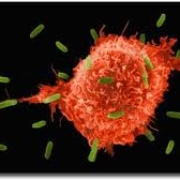Feeding Babies

I often get asked advice on baby’s first foods, so I thought this would be a great topic to discuss today.
Ensuring a healthy baby and good nutrition starts way before the baby is ready for food, and with the mother even before conception occurs.
Making sure the mother is eating properly is extremely important, as the first thing to develop in a baby is the nervous system and this happens even before she discovers she is pregnant. This is why it’s so crucial and important. Since the nervous system controls everything else in the body (and I mean EVERYTHING), having a healthy start will make a big difference in the health and development of the child.
This being said, what nourishes the brain and nervous system? Healthy FATS (Omegas)
When I was pregnant with my last child (as I didn’t know all this with my first two – although my Dad did try to tell me…), this is what my nutrition consisted of: ->2 farm fresh eggs, 1 cup of raw milk, 1 cup of bone broth, and 1 tsp cod liver oil daily. In addition, I had liver at least once a week, and ate lots of fermented foods such as beet kvass, sauerkraut, and other lacto-fermented foods to ensure proper gut health along with maximum absorbency of nutrients for myself and my baby.
Once a child is born, I cannot stress enough how important breastfeeding is for the child. The colostrum, which is the first thing the baby gets before the milk arrives, contains proteins, carbohydrates, fats, vitamins, minerals, and proteins (antibodies) that fight disease-causing agents such as bacteria and viruses. You don’t want your baby to miss out on this if possible. Then, with the amazing miracle that your body is, the mother makes the perfect nourishing milk for the baby. When the saliva of the baby comes into contact with the mother’s nipple, the mother’s body immediately will customize the milk to suit what her baby needs in that moment. It’s absolutely amazing and such a miracle. Your body is so smart! Again, the mother’s nutrition is important, as she cannot give to baby what she does not have herself.
The baby will also get immune support passed on from the mother. The mother passes along all the antibodies she has made for herself, to her baby, when it encounters the same bacteria or virus. This is the body’s natural defense system and immunity that is long lasting.
If a mother can truly not breastfeed for one reason or another (and there are usually often solutions that either a lactation consultant can help with or simple nutritional support can help), there is a great homemade breastmilk formula that has been tried and tested by the Weston A Price foundation to be extremely nourishing that can make a great alternative for those needing it.
Once the baby has teeth, they are ready for table food. To me, there it is no exact age to determine if a baby is ready to eat, but developmental signs such as interest that cannot be distracted with a toy or item, and teeth. Why are teeth so important to wait for? When teeth start to grow, the gum tissue starts to break away and this causes digestive enzymes to be created in the stomach and gut. These digestive enzymes are very important for the digestion and absorption of nutrients. If a parent starts to give a lot of food other than breast milk before the baby has produced these digestive enzymes, the baby could have difficulty digesting the foods and it can lead to more digestive problems or food sensitivities later in life.
The first foods recommended by the Weston price foundation, and I agree, would be egg yolk and livers. This is because they are extremely high in nutrients such as essential fatty acids, B vitamins, iron and so much more. Of course only the best for our baby, so I highly recommend getting farm fresh eggs and liver from free range, bug eating chickens. Other great foods would be the non-sugary, low glycemic foods such as steamed vegetables and avocado. I’m not a fan of starting a child on sugary foods, as they will train their palate at an early age to go for those foods and not the bitter, or savory.
If you’re not sure what to give your baby look at healthy fats, vegetables, then fruit. Do stay away from the grains at first as it is more difficult for your baby to digest and the digestive enzymes and gut biome are still developing.
Some of my favorite recipes consisted of custards made with farm fresh egg yolks and raw milk/cream in the beginning, avocado with egg yolk or breast milk for consistency, and steamed vegetables. I didn’t really do “baby” food, as my children weren’t interested in eating till then got slightly older and had a couple teeth. Chicken bones made for great entertainment for them to chew/suck on when the interest peeked but the teeth weren’t present yet. It also helped as a teething toy. There are great recipe ideas in the book: Nourishing Traditions book of Baby and Child Care.
If you have any great recipes you’d like to share or questions, please leave a comment.
Thank you and blessings to all of you and your babies.











